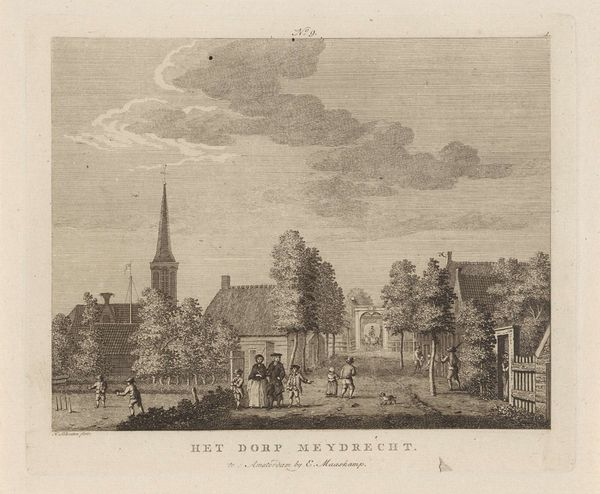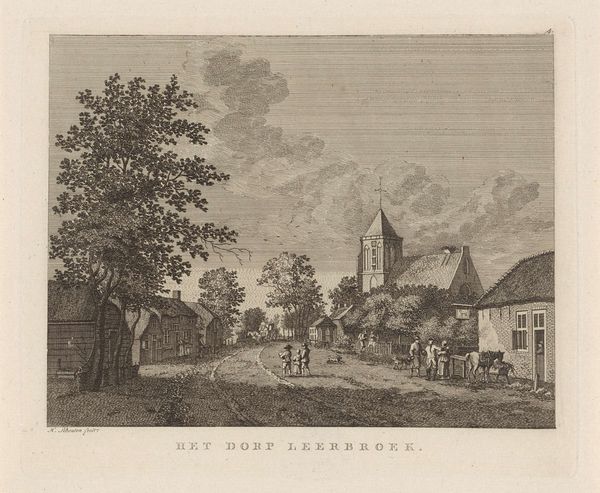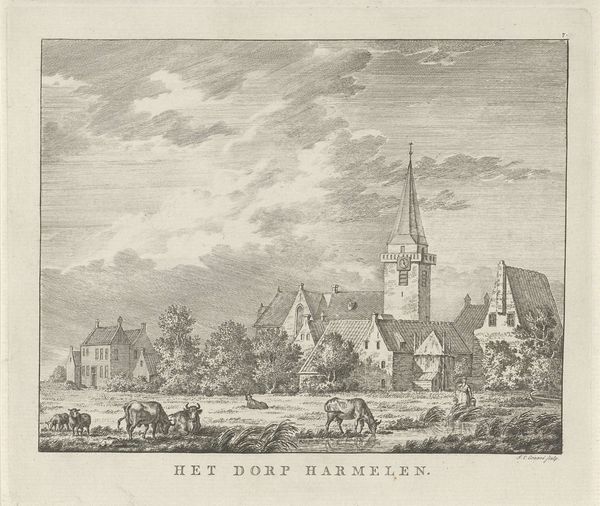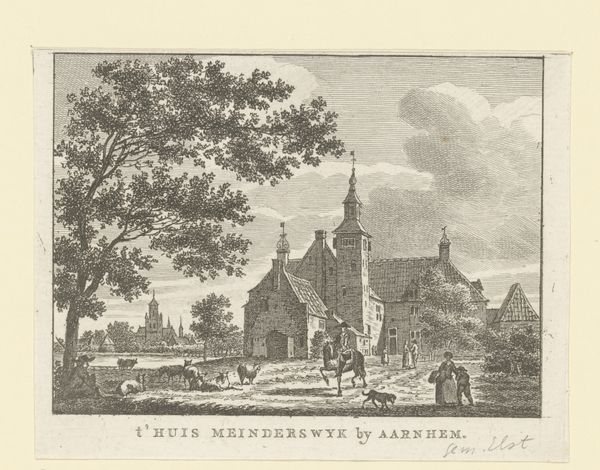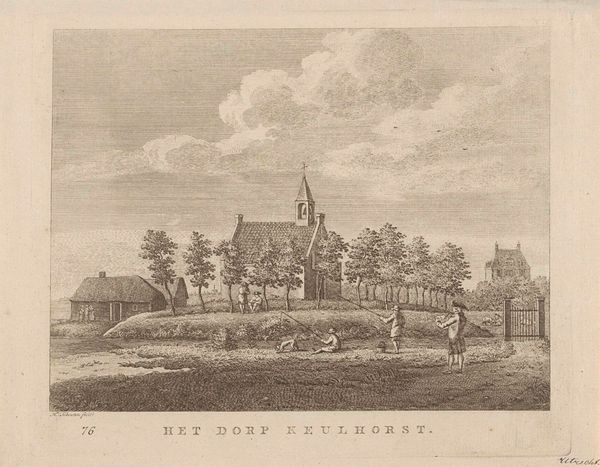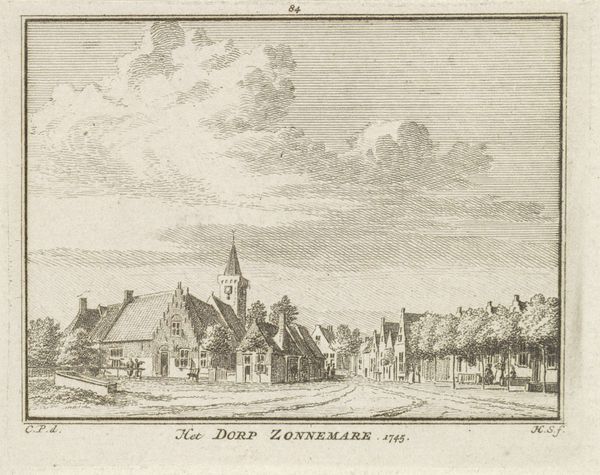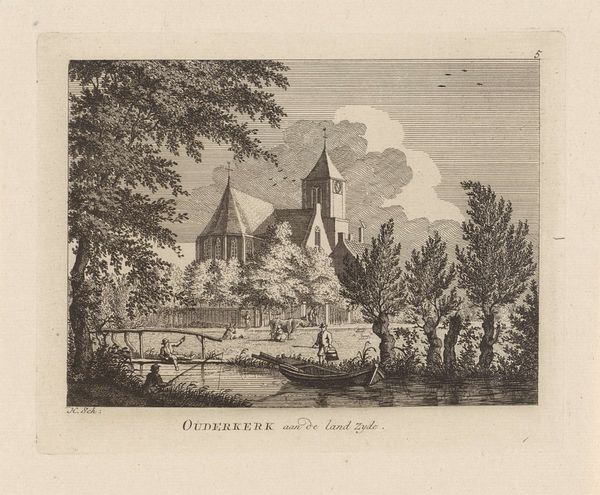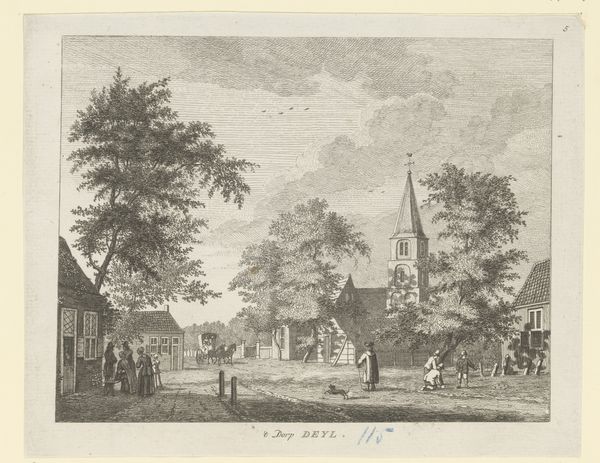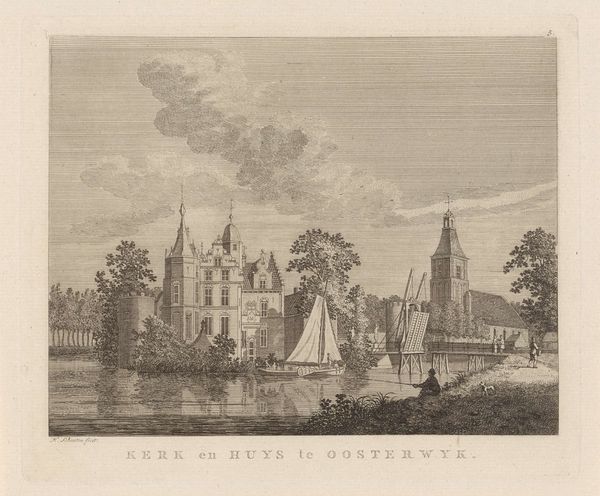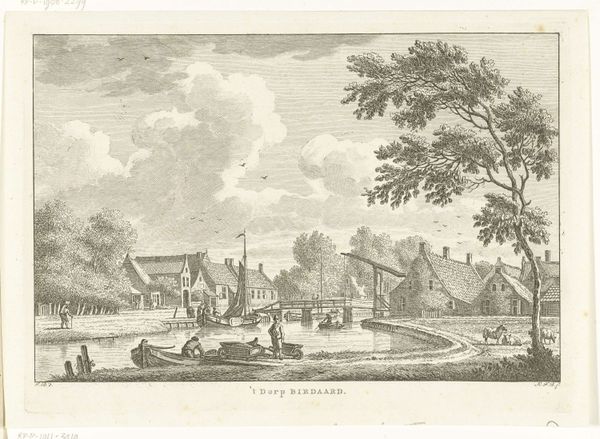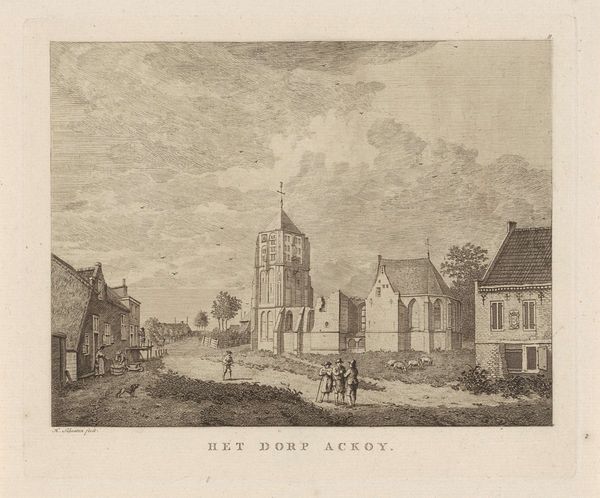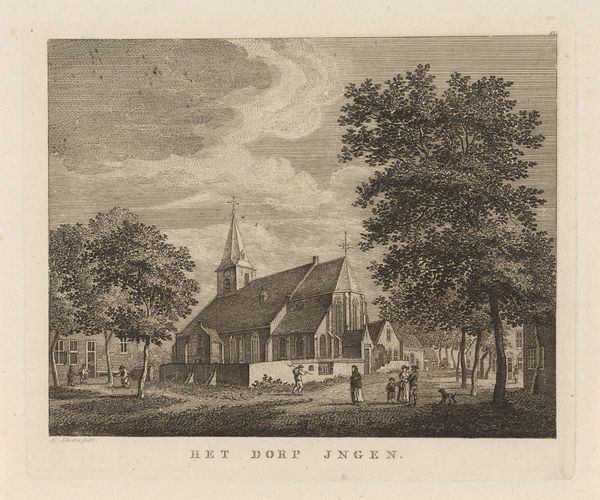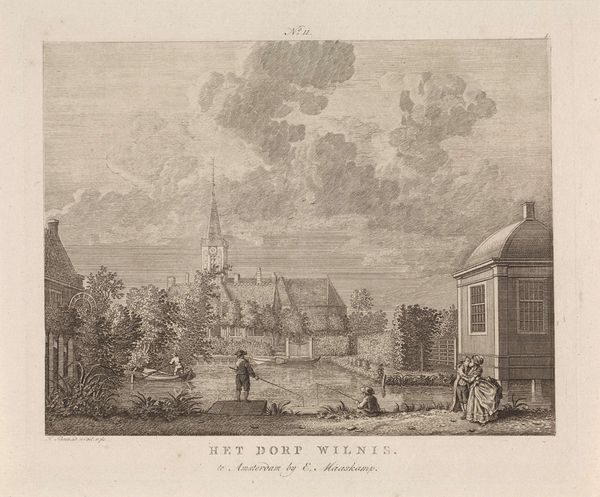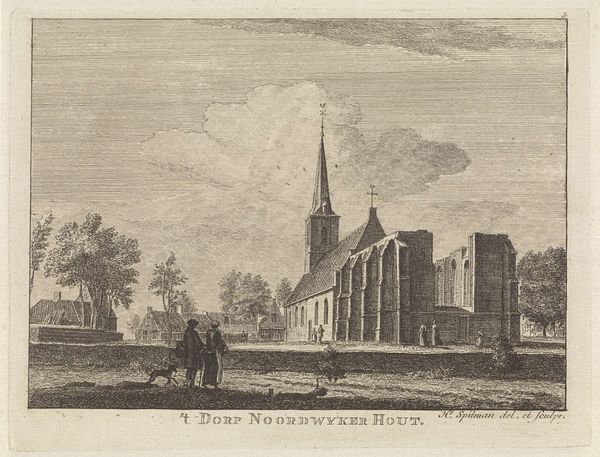
print, engraving
#
dutch-golden-age
# print
#
old engraving style
#
landscape
#
cityscape
#
engraving
#
realism
Dimensions: height 178 mm, width 210 mm
Copyright: Rijks Museum: Open Domain
Hermanus Petrus Schouten made this print of Kasteel Rijnestein in the province of Utrecht, using etching and engraving, two common printmaking techniques. Look closely, and you'll notice how the etched lines define the shapes and textures of the architecture and the landscape. Engraving is used to add finer details and shading, giving depth to the image. The artist’s skill in manipulating these processes results in a highly detailed image, capturing the essence of the village. What's interesting is the social context: printmaking was an important medium for disseminating images and information in the 18th century. Prints like these made art more accessible to a wider audience, but they also reflect the labor involved in both agriculture and artistic production. Consider the amount of work required to produce an etching like this, mirroring the labor-intensive farming depicted in the scene. By recognizing the materials, making, and context, we gain a deeper appreciation for the cultural and social significance of this image.
Comments
No comments
Be the first to comment and join the conversation on the ultimate creative platform.
